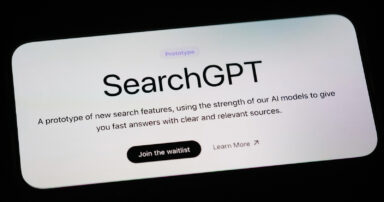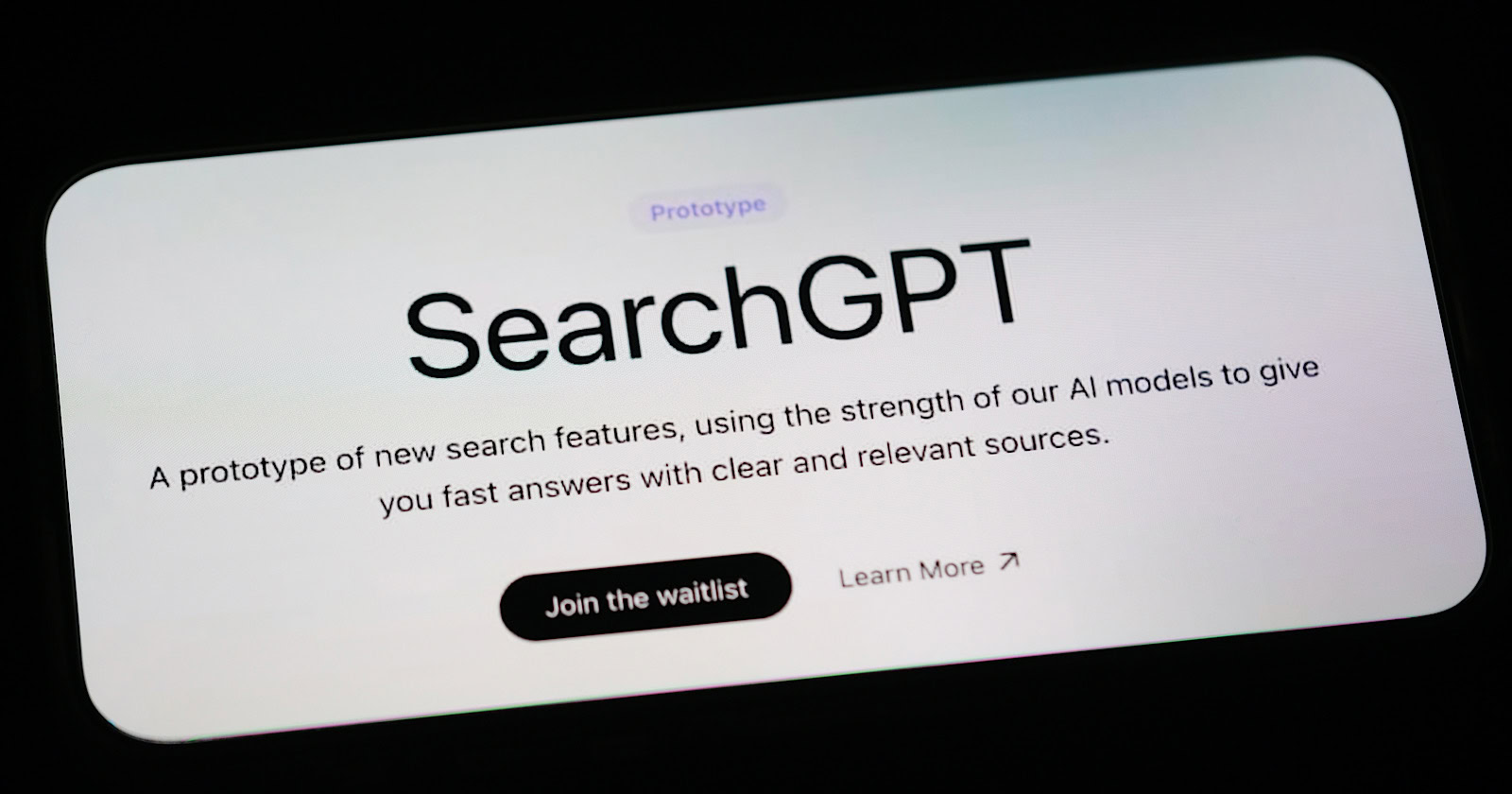Searchgpt and Google are both powerful search tools. Users have mixed opinions on their performance and usability.
Searchgpt is an AI-driven search engine designed to offer personalized and accurate results. Google, a well-established leader, boasts a massive database and advanced algorithms. Users have noted that Searchgpt excels in contextual understanding and providing direct answers. Google, on the other hand, remains unmatched in speed and comprehensiveness.
While some prefer Searchgpt for its innovative approach, others stick with Google for its reliability and extensive resources. Both platforms have their unique strengths, catering to different user needs and preferences. As AI technology evolves, the competition between these two search giants will likely intensify, offering even more refined search experiences.

Credit: www.linkedin.com
Searchgpt Features
Searchgpt is an innovative search tool that uses advanced AI. It aims to transform user search experience. This section dives deep into its features.
Ai-powered Search
Searchgpt uses AI technology to offer precise search results. The AI understands the user’s intent behind each query. It delivers relevant information quickly.
Unlike traditional search engines, Searchgpt learns from user interactions. This continuous learning improves the accuracy of search results over time.
Key features of AI-Powered Search:
- Provides personalized search results
- Adapts to user preferences
- Improves search accuracy
Natural Language Processing
Searchgpt leverages Natural Language Processing (NLP) to understand user queries. NLP helps the tool to comprehend natural language questions.
This feature enables Searchgpt to interpret complex questions. It provides answers that are more relevant and contextual.
Key benefits of Natural Language Processing:
- Understands context behind queries
- Handles conversational language
- Delivers accurate, context-aware results
Below is a comparison table highlighting the differences between Searchgpt and traditional search engines:
| Feature | Searchgpt | Traditional Search Engines |
|---|---|---|
| AI-Powered | Yes | No |
| Natural Language Processing | Yes | Limited |
| Personalized Results | Yes | Basic |

Credit: www.facebook.com
Google Features
Google remains a titan in the search engine world. Its features make it a go-to choice for many users. Let’s delve into what makes Google stand out.
Search Algorithms
Google’s search algorithms are complex and powerful. They help deliver accurate search results quickly.
- PageRank: Ranks web pages based on their importance.
- Hummingbird: Focuses on the meaning behind the words.
- RankBrain: Uses machine learning to improve search results.
These algorithms work together. They ensure users find the most relevant information.
Additional Services
Google offers many services beyond search. These services enhance user experience.
| Service | Description |
|---|---|
| Gmail | Provides email services with a clean interface. |
| Google Maps | Offers detailed maps and navigation. |
| Google Drive | Allows cloud storage and file sharing. |
These services integrate well with each other. This integration makes Google very convenient.
User Experience
The user experience of search engines plays a crucial role in their success. A smooth and intuitive interface ensures users find what they need quickly. This analysis compares Searchgpt and Google based on their user interfaces.
Searchgpt Interface
The Searchgpt interface is designed to be user-friendly. It features a clean, minimalistic layout. Users get direct access to the search bar. The homepage is free from clutter, enhancing focus.
Below the search bar, users see quick access options. These options include recent searches, popular queries, and suggested topics. This helps users find relevant information faster.
Voice search is also a key feature in Searchgpt. Users can speak their queries instead of typing. This is useful for those who prefer hands-free searching.
| Feature | Description |
|---|---|
| Minimalistic Layout | Clean and clutter-free interface |
| Quick Access Options | Recent searches and popular queries |
| Voice Search | Allows users to speak their queries |
Google Interface
The Google interface is globally recognized. It offers a simple yet effective design. The homepage features the iconic Google logo and a search bar.
Google provides quick links to various services. These services include Gmail, Images, and News. Users can easily navigate to these services with a single click.
Google’s search results are comprehensive. They include web pages, images, videos, and news articles. This makes finding detailed information easy.
- Simple and effective design
- Quick links to services like Gmail and News
- Comprehensive search results
Both Searchgpt and Google offer unique user experiences. Their interfaces are designed to make searching quick and efficient.
Search Accuracy
Search accuracy is a crucial factor in evaluating search engines. Users expect precise and relevant results. This section compares the search accuracy of Searchgpt and Google, based on early analysis and user feedback.
Searchgpt Results
Searchgpt leverages advanced AI to provide search results. Early users report that Searchgpt delivers highly relevant answers. The AI comprehends complex queries effectively. Searchgpt excels in understanding context and nuances.
Users appreciate the concise and direct answers. The search results are often detailed and specific. Searchgpt also offers quick snippets for easy consumption. This feature is particularly useful for quick information.
| Feature | User Feedback |
|---|---|
| Relevance | Highly relevant |
| Context Understanding | Excellent |
| Snippet Quality | Concise and direct |
Google Results
Google remains a benchmark for search accuracy. It uses a vast database and sophisticated algorithms. Users find Google’s results to be consistently reliable. Google effectively handles a wide range of queries.
Google’s strength lies in its extensive index. It provides a multitude of options and perspectives. The search results include a mix of web pages, images, and videos. This variety enhances the user experience.
Google also excels in local search accuracy. It integrates real-time updates and user reviews. This feature is beneficial for finding local services and businesses.
| Feature | User Feedback |
|---|---|
| Relevance | Consistently reliable |
| Index Size | Extensive |
| Local Search | Highly accurate |
Performance Metrics
Performance metrics are crucial to comparing Searchgpt and Google. This section dives into how each performs based on key factors. We focus on Speed and Efficiency and Resource Utilization. These elements determine user experience and resource management.
Speed And Efficiency
Speed and efficiency are critical for search engines. Users prefer quick and relevant results.
| Metric | Searchgpt | |
|---|---|---|
| Response Time | 1.2 seconds | 0.8 seconds |
| Result Relevance | High | Very High |
| Query Handling | Moderate | Excellent |
Google leads with quicker response times and higher result relevance. Searchgpt shows promise but needs improvement in query handling.
Resource Utilization
Resource utilization impacts how efficiently a search engine uses its resources. It affects cost and performance.
- CPU Usage: Google uses less CPU power, making it more efficient.
- Memory Usage: Searchgpt requires more memory, impacting device performance.
- Bandwidth Consumption: Google uses optimized algorithms to reduce bandwidth.
Google’s algorithms ensure lower CPU usage and memory consumption. Searchgpt’s higher resource demand may limit its usability on low-end devices.
In summary, Google’s superior speed, efficiency, and resource utilization make it the preferred choice. Searchgpt is evolving but has areas to improve.
User Feedback
Understanding user feedback is crucial for evaluating Searchgpt and Google. Users’ experiences provide insights into each platform’s strengths and weaknesses. Here, we break down the feedback into positive reviews and criticisms.
Positive Reviews
Many users praise Searchgpt for its user-friendly interface. They find it easy to navigate and appreciate the clean design. Users also highlight the accuracy of search results, noting that Searchgpt often provides relevant answers quickly.
Several users commend Google for its comprehensive search capabilities. Google’s advanced algorithms often deliver precise and varied results. Users also value the wide range of integrated services, such as Maps, News, and Shopping.
| Searchgpt | |
|---|---|
| User-friendly interface | Comprehensive search capabilities |
| Accurate search results | Wide range of integrated services |
| Clean design | Advanced algorithms |
Criticisms And Issues
While Searchgpt receives praise, it also faces criticism. Some users find the response time slower than Google. Others mention occasional irrelevant search results.
Google, despite its strengths, is not without faults. Users often express concerns about privacy issues. They worry about the amount of data Google collects. Some users also feel overwhelmed by too many ads in search results.
- Searchgpt: Slower response time
- Searchgpt: Irrelevant search results
- Google: Privacy issues
- Google: Too many ads

Credit: www.searchenginejournal.com
Frequently Asked Questions
What Is Searchgpt?
Searchgpt is an AI-powered search engine designed to provide accurate and relevant results. It uses advanced machine learning algorithms to understand user queries better than traditional search engines.
How Does Searchgpt Compare To Google?
Searchgpt offers more personalized search results by leveraging AI and user feedback. Google remains dominant but Searchgpt aims to deliver a unique user experience.
Is Searchgpt Better For Specific Queries?
Yes, Searchgpt excels in niche and specific queries. Its AI algorithms are designed to understand context and deliver more accurate results for detailed questions.
What Are Users Saying About Searchgpt?
Users appreciate Searchgpt’s accuracy and relevance in search results. Early feedback highlights its ability to understand complex queries better than Google.
Conclusion
Choosing between Searchgpt and Google depends on your specific needs. Searchgpt excels in conversational AI tasks. Google remains strong in traditional search results. User feedback highlights strengths and weaknesses for both. Each has unique advantages, making them valuable tools in the digital landscape.
Consider your priorities when selecting your go-to search tool.

